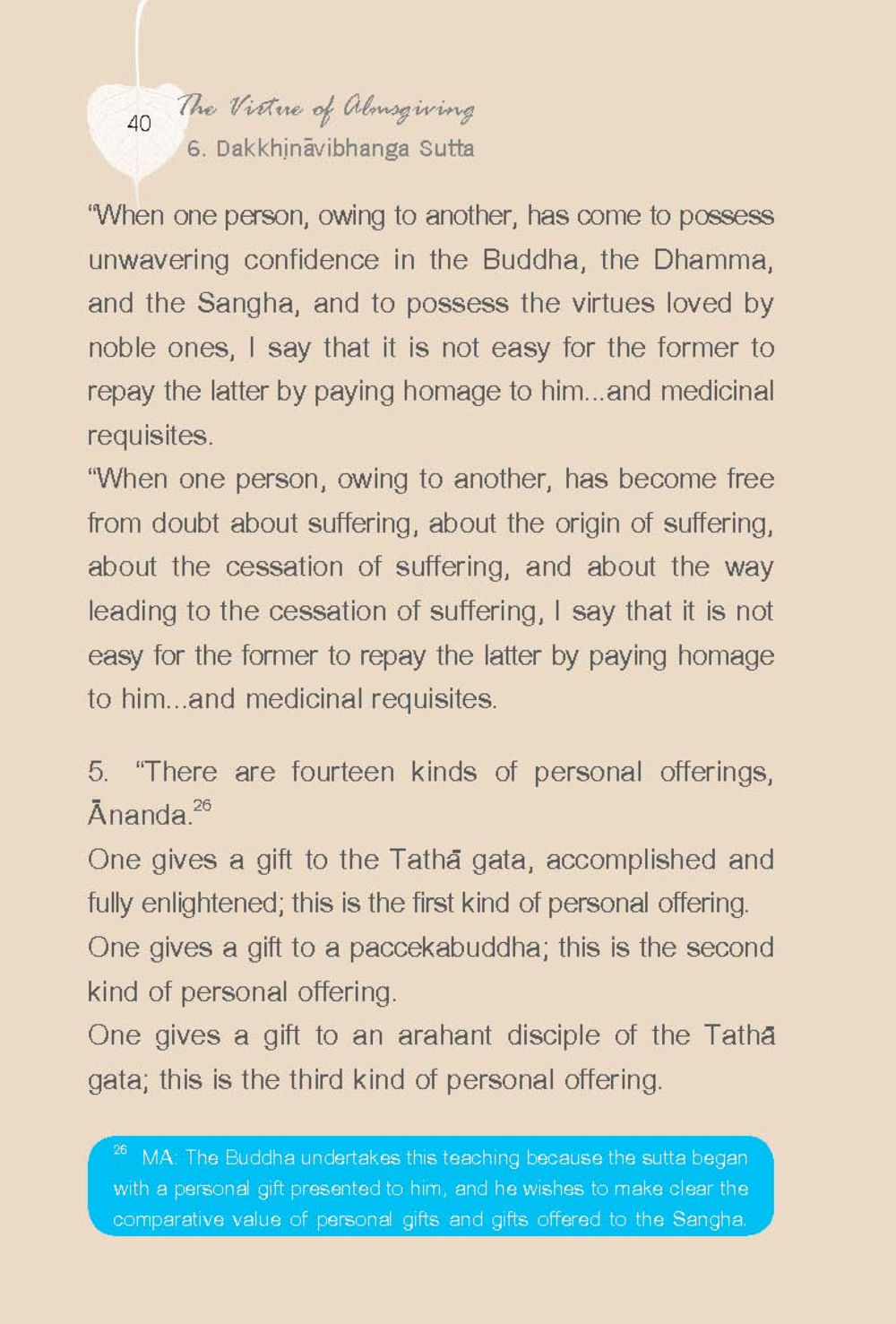The Verse of Abandoning: Dakkhināvíbhanga Sutta : หน้า 40/120
ทานบารมี สูตรลัดแห่งความสุข : หน้า 40/120 Explore the teachings of the Dakkhināvíbhanga Sutta on confidence, offerings, and the importance of honoring the Buddha, Dhamma, and Sangha.
0 ครั้ง

สรุปเนื้อหา
The Dakkhināvíbhanga Sutta emphasizes the significance of unwavering confidence in the Buddha, Dhamma, and Sangha. It illustrates how one person's faith and understanding can be influenced by another, making it difficult to fully repay the influence through mere offerings. The text discusses various types of personal offerings, highlighting gifts to the Tathāgata, paccakabuddha, and arahant disciples, underlining the importance of spiritual contributions over material. Through this teaching, the Buddha clarifies the value of personal gifts versus communal offerings to the Sangha, guiding followers toward a deeper understanding of gratitude and respect.
หัวข้อประเด็น
-Unwavering confidence
-Personal offerings
-Value of gifts to Sangha
-Influence of others on faith
-Teachings of the Buddha
























































































































